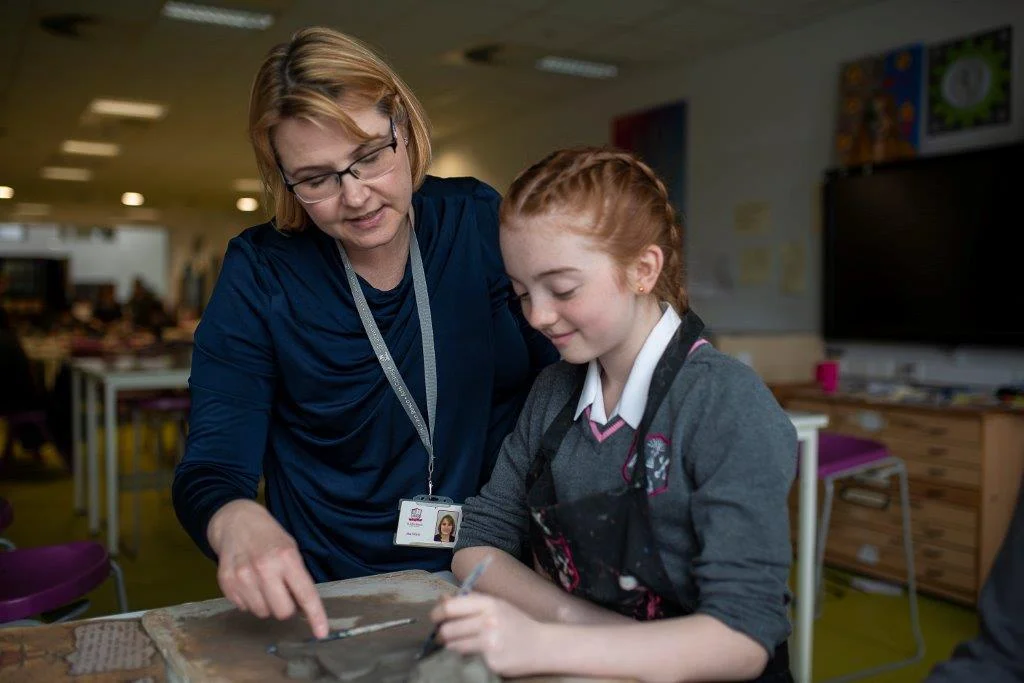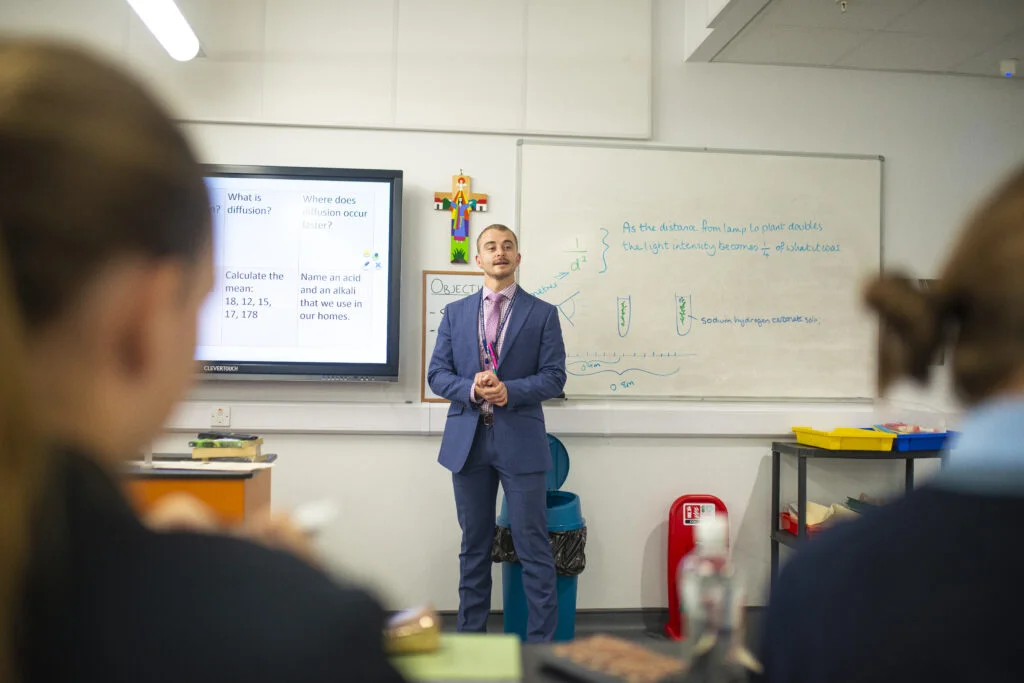ECF Mentor Guidance
Welcome to your ECF Mentor Training programme. Your Induction Tutor has enrolled you onto University College London’s (UCL) Mentor Training Programme. It is a two-year training programme that you should work through alongside your ECT(s). The programme offers outstanding training, an opportunity for continuous professional development and enables you to delve into the research behind each of the Teachers’ Standards in order to support your ECT’s development. Once completed, you will receive your “mentor badge”. This will enable you to mentor other ECT’s in your school as you will have gained a deeper understanding of the ECF.
As the Lead Provider, UCL will send you login details for their platform ‘UCLeXtend’. Here you will have access to their training materials, broken down into 9 modules over the two years. The programme provides a weekly focus for your mentor meeting with your ECT and guides you to your training materials. Your Delivery Partner is Inspire Learning Teaching School Hub who work in collaboration with UCL and the DfE to ensure ECTs have access to the funded training and that you, as a mentor, complete the two-year training programme.
The ECF is not assessed in any way. Instead, it covers the elements of the framework that every ECT must study to support them to demonstrate at least expected progress against the Teachers’ Standards as required for them to be recommended to “pass” their statutory Induction. ECTs Induction is monitored by an Appropriate Body appointed by the school PRIOR to the start of the induction period. Whilst separate from the ECF/UCL training programme both parts are compulsory. As a mentor you will be asked to report on your ECT’s progress for their termly progress reviews and formal assessments. Your in-school Induction Tutor will inform you of what is needed and timelines for completion. To support this process, it is useful to ensure that your ECT(s) keep a record of evidence against each of the Teachers’ Standards as they progress through the two years. This should not become a burdensome process. There are 6 assessment points for ECTs. Progress reviews in terms 1, 2, 4 and 5 and formal assessments in terms 3 and 6. Bear in mind that the sequence of the reviews/assessments is set irrespective of which point in the year your ECT starts i.e., an ECT who starts Induction in the Autumn term 2024 will require a progress review 1 by Christmas, progress review 2 by Easter 2025 and then first formal assessment before the end of the Summer term 2025, however if the ECT doesn’t start until the Summer term of 2025 they will need a progress review 1 before the end of the term and continue the cycle into academic year 2025/26.
This guide is designed to be a short summary of the key things that ECT mentors need to know. We would recommend that all Mentors and Induction Tutors access and read the UCL ECF Programme Handbook. You will locate this on the UCLeXtend website under the tab named ‘Guides’.
This document is split up into three sections:
Explanation of the ECF Mentor training programme
How Mentors can be flexible in their application of the ECF
Guidance for Mentors who start late in the academic year
Explanation of the ECF Mentor Training Programme
Mentoring comes in many forms. UCL favours ONSIDE mentoring in Year 1, and Educative Mentoring in Year 2. These approaches emphasise development and collaboration and recognise the mentor and mentee as ‘co-learners’. The mentor, on an ECF programme, is not an assessor – that’s the role of the Induction Tutor – the UCL mentoring framework does not involve assessment. They balance support with challenge and (with Educative Mentoring) see the classroom as a site of inquiry.
The UCL ECF Mentoring programme consists of three elements:
Mentor support for ECTs in school
Mentor training sessions organised and facilitated by Inspire Learning Teaching School Hub
Mentor self-study on UCLeXtend
Mentor support for ECTs in school
In Year 1, mentors will have a structured meeting with their ECT every week, using UCL resources that can be found for each weekly module on UCLeXtend. Mentors should also use this time to make sure the ECT is keeping up with their own self-study, and that they are managing the burdens of being a new teacher. In Year 2, these meetings take place each fortnight. They should last approximately one hour.
In the first mentor meeting of each module (found in week 1 of each module on UCLeXtend), the mentor invites their ECT to conduct a self-assessment against the relevant Teachers’ Standards, using the Module Audit. Thereafter, the mentor will remind their ECT that they can focus their learning for that module on the areas they identified for personal development.
Apart from a couple of times in Year 1, there is no explicit requirement for mentors to observe their ECT and provide feedback as part of the ECF. Of course, when done well, this is a great professional learning tool, but we leave it up to you and your Induction Tutor to decide how often you should do this. Your Induction Tutor will schedule observations as part of the statutory Induction process which may or may not involve you as the ECT’s mentor.
Mentors are not assessed through the programme however, your engagement with the programme is tracked by UCL and the DfE. Engagement data is monitored by Inspire Learning Teaching School Hub and the DfE uses this data to inform decisions about funding. At the end of each module, we require all mentors – and ECTs – to complete an End of Module Completion form. Where a mentor has more than one ECT, they complete the form just once, with one ECT in mind. This will usually be the ECT you started the training programme with. This is feedback on the programme and is not an assessment. UCL uses this information to make continuous improvements to their programme and the feedback will also inform Inspire Learning TSH of any improvements we may need to make.
It is important that ECTs and mentors complete their tasks and module completion forms via their own logins to leave their digital footprint. This records your engagement with the mentor training programme and the ECT’s engagement with their ECF training.
Mentor training provided by Inspire Learning
Our mentor training programme differs slightly from that stated on UCLeXtend. Based on feedback our mentors felt they would benefit more from face-to-face sessions rather than them all being online. Therefore, three times per year, mentors meet for training, with a facilitator hosting the session. During the session mentors have the opportunity to review their own professional learning, consider any challenges they are facing, and grapple with a mentoring issue (such as how to offer wellbeing support to ECTs). The training allows mentors across various school settings to collaborate and share their experiences and best practice. In Year 1 Mentor training will take place in the Autumn term (face-to-face), followed by a one-hour online meeting in the Spring term and finally in the Summer term (face-to-face). In Year 2 we offer two face-to-face sessions in the Autumn and Spring terms followed by an online session in the Summer term. Full details of the dates and times of these sessions can be found on our Inspire Learning website each academic year in your module map.
Attendance at the mentor training sessions is monitored, therefore we offer a few session options each term in both Liverpool and Wirral venues that you can attend to avoid clashes with other commitments you may have. Backfill payments to support mentor training and release is paid to school by DfE retrospectively.
It is important to note that mentors can follow their own pathway of training that is distinct from ECTs:
Once a mentor has completed the full two years of this training, they no longer need to attend any further training and are considered fully trained ECT mentors.
If you are a new mentor in September, then you can start this training at the beginning on module 1 alongside your ECT if they too are a September starter ECT. If, however, you are assigned to an ECT who has already completed some of the ECF training you may start your training on a different module but should end your training by completing the modules from the start of the programme.
If you are mentoring an ECT in their first year, but you have already completed the Year 1 mentor training, you should continue onto the Year 2 mentor training of your professional learning journey, as this continues irrespective of where your ECT is within their learning. You can then revert to the modules your Y1 ECT is on to access the mentor meeting focus and review your ECT’s progress with their module and self-directed study.
If you completed the Year 1 mentor training but currently don’t have an ECT to mentor, you can either continue on into the Year 2 Mentor training or pause your training. If you choose to pause, your school Induction Tutor needs to update the DfE Portal and inform Inspire Learning TSH that you are ‘deferring’. We advise that you continue your training to complete the funded programme even if you are no longer mentoring an ECT.
If you are a late starter, you will join the January or April starter cohorts and your ECT’s journey will be slightly altered. We advise you to follow their module journey to complete your training programme as this will allow you to work through the module alongside your ECT (for further information see point 3). Your module map on our Inspire Learning website will provide you with your altered module journey and training dates. You will find module maps under the ECF tab on the website.
Mentor self-study provided by UCL
Alongside the mentor training described above, ECT mentors also need to complete two years of self-study, which can be accessed on UCLeXtend. Again, the DfE uses engagement with these self-study materials to inform decisions about funding for the mentor role.
For each module, mentors have self-directed study activities. The materials are in 2 parts:
Mentor Development: including a research and practice summary and some self-directed study activities.
Familiarisation with Module Content from the ECF.
2. How mentors can be flexible with the ECF Content
Although following the Early Career Framework is a statutory requirement for schools, by adopting the UCL programme in collaboration with Inspire Learning Teaching School Hub, you can be quite flexible with how you use it in your school. Remember, the aim is that the programme supports ECTs and helps to ensure that they remain in the profession and that the training they receive in their first two years enables them to lay the foundations for a long, successful career in the profession.
We feel that the UCL ECT ‘Wellbeing Charter’ below describes the different ways in which ECTs and Mentors can be flexible with how they complete the ECF in their schools.
3. Guidance for mentors who start late in the academic year
Whilst most ECT Mentors will start the role in September, we are aware that a small number will start later in the year (usually in the Spring or Summer term). In this instance, the trajectory for Mentor training and self-study is more complex.
For ECT Mentors starting in spring term:
Mentor Support for ECTs – you will need to know which module your ECT is on and use the weekly (or bi-weekly) meeting materials from UCLeXtend that match this module. See page 9.
Mentor training provided by Inspire Learning – you will join the September starter mentors training programme in the spring term at their second and third training session which focuses on modules 3, 4 and 5. In year 2 your mentor training programme will be tailored to your ECT’s module journey. Details of training can be found in your module map on the Inspire Learning website under the ECF Tab/Module maps.
Mentor self-study provided by UCL – you will need to start the Mentor self-study on UCLeXtend at module 3 in the Spring term, and then complete module 4 and 5 in the summer term. You will then do Modules 1, 2 and 3 in the following Autumn and Spring terms before moving to modules 6, 7, 8 and 9 for the remaining four terms.
For ECT Mentors starting in summer term:
Mentor Support for ECTs – you will need to know which module your ECT is on and use the weekly (or bi-weekly) meeting materials from UCLeXtend that match this module. See page 9.
Mentor training provided by Inspire Learning – you will join the September starter mentors training programme in the summer term at their third training session which focuses on modules 4 and 5. In year 2 your mentor training programme will be tailored to your ECT’s module journey. Details of training can be found in your module map on the Inspire Learning website under the ECF Tab/Module maps.
Mentor self-study provided by UCL – you will need to start the mentor self-study on UCLeXtend at module 4 in the Summer term, and then also complete module 5 by the end of the academic year. You will then do Modules 1, 2 and 3 in the following Autumn and Spring terms before moving to modules 6, 7, 8 and 9 for the remaining four terms.
January Starter Module Journey (M3 spans over a full term and module 8 spans over a term and a half). | April Starter Module Journey (M3 spans over a full term and module 8 spans over a term and a half). |
Spring Term: Module 3 | Summer Term 1: Module 4 |
Summer Term 1: Module 4 | Summer Term 2: Module 5 |
Summer Term 2: Module 5 | Autumn Term 1: Module 1 |
Autumn Term 1: Module 1 | Autumn Term 2: Module 2 |
Autumn Term 2: Module 2 | Spring Term: Module 3 |
Spring Term 1: Module 6 | Summer Term 1: Module 6 |
Spring Term 2: Module 7 | Summer Term 2: Module 7 |
Summer Term: Module 8 | Autumn Term: Module 8 |
Autumn Term 1: Module 8 completion | Spring Term 1: Module 8 Completion |
Autumn Term 2: Module 9 | Spring Term 2: Module 9 |
We hope you enjoy your mentor training with UCL. We are always available to support you and your ECT during the two years of the training programme. For ECF support email ecf@inspirelearningtsh.co.uk









